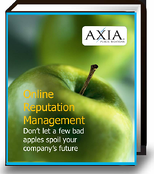The verdict is in. George Zimmerman, 29, was found not guilty in the 2012 death of 17-year-old Trayvon Martin. But regardless of what jurors decided, the court of public opinion is now weighing in on both sides of the fence.
Companies struggle with this same verdict all the time. When the beef industry came under fire in 2011 for its “pink slime,” the legal system found there to be no evidence of wrongdoing, yet in the court of public opinion, beef producers were facing damage control.
The public had already decided that meat was no longer meat. Instead, they believed a pink oozing substance was what our kids were eating every day in lunch rooms across the country and at the dinner table on date night. Had they really looked into the matter, they would have found their reaction might have been misguided.
But this is the reality of the world we live in: Sometimes winning in the court of public opinion is just as important as winning in actual court.
Taco Bell went on a marketing frenzy after reports surfaced that its meat was not really meat. It didn't help matters when a social media user started circulating photos of an employee licking taco shells.
In the case of these two industries, the customers are seeking their own “judgments” in the court of public opinion. Most hope that the docket isn't too full and they can get a more favorable settlement by airing their grievances in public.
In the court of public opinion it is all about protecting your brand – after all, that's what's on trial.
So what can companies learn from this?
Because today's business environment is so media-saturated, even the smallest companies are in a game of high-stakes profiles that need protection. In many cases, litigation isn't even in the mix; rather, it's public relations strategies on the line, maintaining reputations.
Your brand is your livelihood. The court of public opinion is becoming a growing trend of customer service justice. It differs drastically from the traditional court system – this courtroom involves revenge, public shaming and the whims of customers.
Businesses that have public Facebook pages and Twitter profiles make easy targets. That's why it is so important to actively engage followers and posters. Taking a day off could give a negative post the opportunity to go viral. It's better to be proactive and reactive than absent.
The court of public opinion hands down justice in the form of reputation, and reputations are a commodity most companies can't afford to do without. Reputation is a large part of the brand. Without it, what's left? Studies have shown that public arguments that seem plausible are often given more attention compared to those that seem far-fetched. Regardless, you need to address both. No rebuttal does not mean innocent. Just ask the Florida State Prosecutor who lost his case against Zimmerman.
Jason Mudd, APR, is the CEO of Axia Public Relations, a public relations firm specializing in national public relations campaigns. He is an Emmy-award-winning, accredited public relations practitioner, speaker, author and entrepreneur. He has worked with great brands such as Dave & Buster’s, Florida Blue, H&R Block, Hilton, HP, Miller Lite, New York Life, Pizza Hut, Ray Charles, Tarmac, Verizon and emerging brands like Advance Rehabilitation, American Association of Clinical Endocrinologists, Bougainvillea Clinique, Brightway Insurance, Center for Reproductive Medicine and IntelligentM. Learn more at www.axiapr.com.
Download our ebook:
Online Reputation Management
Don't let a few bad apples spoil your company's future.
Topics: public relations, reputation management, crisis communications, online reputation management



Comment on This Article